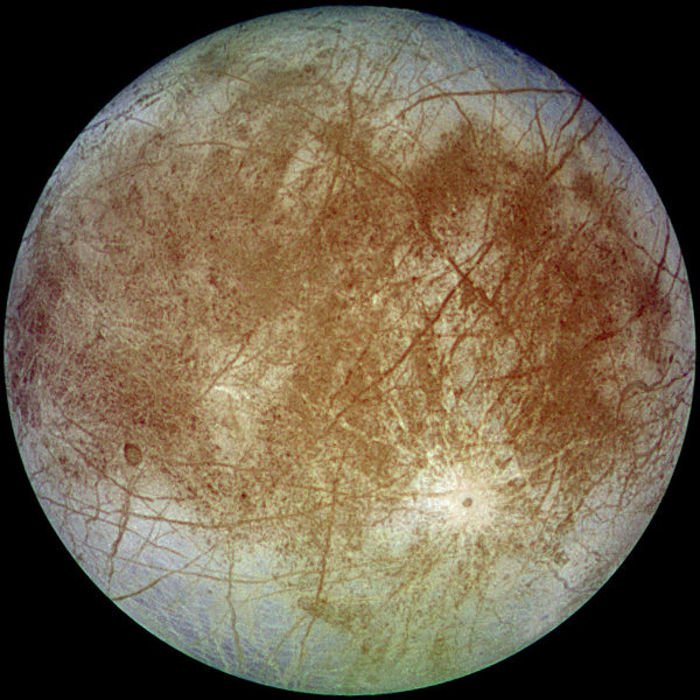AUSTIN, Texas, Dec. 3 (UPI) -- Currents and circulation patterns in the subsurface ocean on Jupiter's moon Europa may create heat and energy capable of sustaining life, U.S. scientists say.
Scientists have long considered whether the salty, global ocean below Europa's icy shell makes the moon one of the planetary bodies in the solar system most likely to have conditions that could sustain life.















